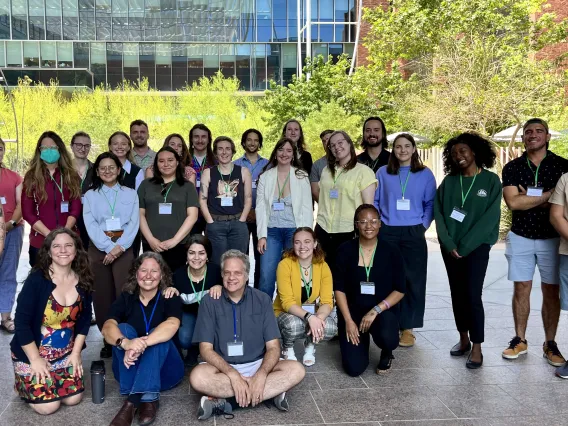
Convergence Institute
Each May we holdr a three-day conference at the U of A. Featuring training opportunities for students as well as a keynote panel, career discussions, practical skills, and research presentations, this meeting is an annual highlight for students, faculty, and staff.
2024 Agenda: https://docs.google.com/document/d/1mKevv1JC5tOsD6bmrd1MH8OpBqsceWrNKBwgyPnUKiM/edit
2024 Flyer: https://drive.google.com/file/d/1aG8822bZiGDyyN7rlrXW7ITV_ayrfPW4/view?usp=share_link
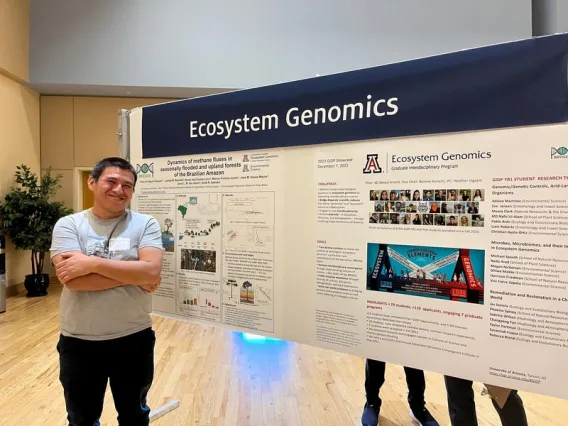
Professional Development
Ecosystem Genomics Students are invited to present at the NSF Research Traineeship Annual Meeting and the U of A Graduate InterDisciplinary Conference each year. Students are encouraged to present at other conferences to develop their professional skills
Students also receive professional development in the fall and spring courses, during the EG Seminar Series, and at the Convergence Institute.
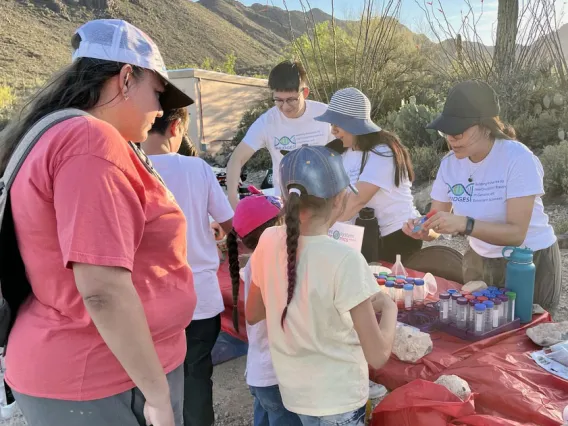
Outreach Opportunities
Students are encouraged to engage 20+ hours with the public to improve communication sills and give back to the community. Ecosystem Genomics students table at science events, assist with judging science fairs, and work with youth groups.
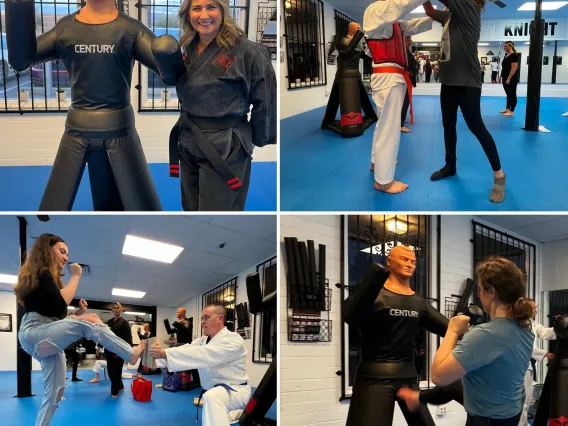
Social Activities
Students and faculty are invited to participate in networking and social activities to help strengthen their ties to the Ecosystem Genomics community. Past activities have included hikes, tours of Biosphere2, dinners with presenters, and self defense workshops.
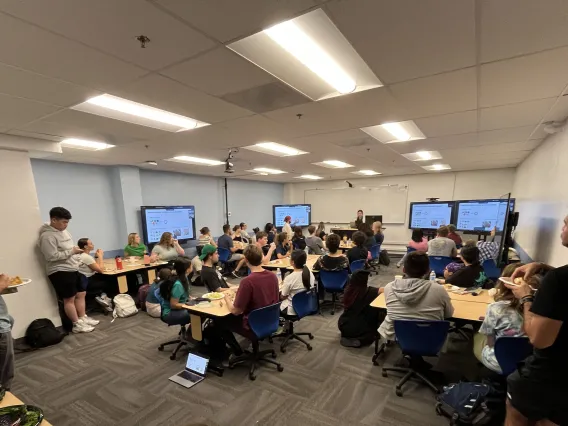
EG Seminar Series
These lunchtime talks, supported by BIO5 Institute, are offered mainly in spring and focus on interdisciplinary research The goals are to introduce faculty and staff to different ways of thinking and offer them opportunities to network with other academics, members of national labs, researchers in industry and more.
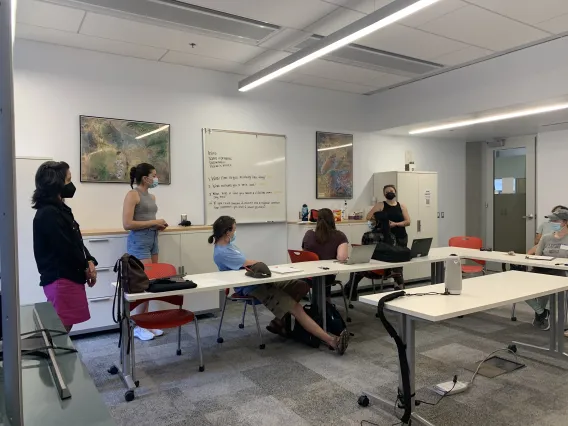
EG Seminar Courses
Students participate in a fall and spring course during the first year of the program.
The fall course centers around current topics and principles underlying Ecosystem Genomics. Students read suggested articles and prepare questions for scheduled presenters.
The spring course focuses on preparing students to discuss their research and develop their research ideas while growing new professional skills and knowledge of best practices in science. The course combines open discussion of participant research ideas and goals with training on how to succeed and be more efficient in the sciences

